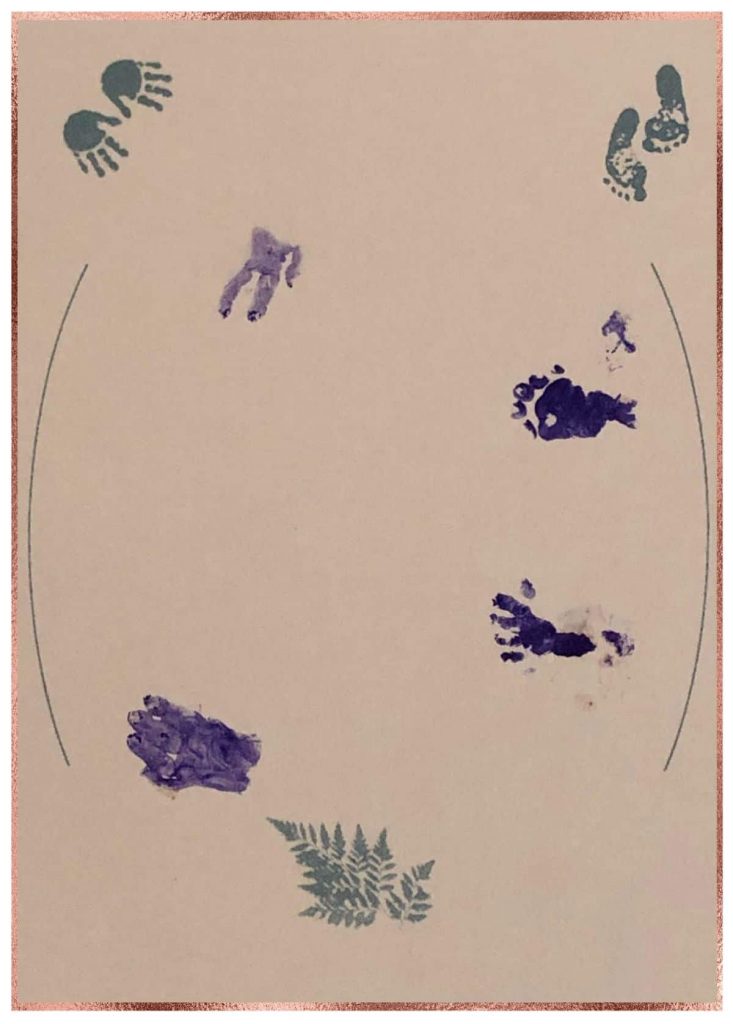Disclaimer: This post contains topics and opinions that may evoke strong emotional responses. It talks about pregnancy, chromosomal abnormalities, and termination for medical reasons (TMFR). This is one mother’s story of how she made the heart-wrenching decision to terminate her pregnancy for medical reasons.
Unless you choose the “I’m-not-watching-the-news-or-social-media-ever” route (a privileged position, yes, but also one that might improve all our mental health), you’ve been inundated with the news about the various versions of a “Heartbeat bill” that several states are adopting. You’ve seen a barrage of opinions from everyone.
From your great aunt on Facebook to the billboard near your house with the baby smiling sweetly and encouraging you to “choose life,” this topic is everywhere.
Literally everyone has an opinion.
Even in comments on the Undefining Motherhood Facebook page, where we haven’t directly discussed this legislation, the subject has come up in comments. Although not looking to directly engage with this topic, it’s found our way to our social media platforms.
It’s probably found its way to every social media platform. Why? Because people have opinions, and they are STRONG.
We are not here to tell you what your opinion should be.
Here’s the deal. It is NOT our job to tell you what to think–we’re about UNdefinining. It IS our job to provide you research and evidence-based information. And it’s our job to tell you real stories about real people. We want to share stories as they come to us, and we welcome your opinions, as long as they maintain a respectful tone.
Behind every opinion is a story, and the more stories we know, understand, and empathize with, the more educated our opinions can be.

This is one mother’s story about being pregnant with a baby with extreme chromosomal abnormalities and termination for medical reasons.
We hope you won’t look away from this post because you don’t want to read this story. It’s a hard story, yes, but imagine how hard it was for the mama who had to endure this decision-making process. Imagine all the parents who have to make such decisions, no matter what decision they make.
A Crisis of Faith
Note: Chromosomal abnormalities are genetic structures that cannot be changed. Jacob will live with the struggles of his genetic makeup for the rest of his life.

Amid the chaos of Jacob’s diagnosis and care, Faith found out she was pregnant. All while learning more about the chromosomal abnormalities her DNA can to pass down. (Learn more about genetic translocations by checking out last week’s post, or more scientifically by clicking here).
Entering her new pregnancy, Faith knew she might have passed down the same chromosomal abnormalities as Jacob’s–or worse. Or, she could have produced a baby with a normal genetic structure. She hoped for the latter outcome, but knew it may not be the case. Anxiety, fear, abundant testing, and potentially devastating decisions filled her near future, and she knew it.
Please hold space for Faith’s journey. It deserves to be read with empathy and love. Trust us: this is important.

This site contains affiliate links, meaning that we earn a small commission for purchases made through our site. We only recommend products we personally use, love, or have thoroughly vetted.
Pregnancy Amid Chaos and Chromosomal Abnormalities
Pregnancy is often filled with anxiety, but the news of this new pregnancy came with a level of fear most of us cannot imagine. Faith says the news left her with only one resounding feeling:
She must remove her own emotions from the situation and have much more extensive genetic testing done with this pregnancy.
She refused to become attached to the baby until she knew if it would be afflicted in the same way as Jacob—or worse. Think it sounds bad to remain detached from pregnancy? Katy wrote about these feelings in “5 Tips for Coping with Pregnancy After Loss.” Long story short, this is a normal response, especially for moms who have endured past reproductive or childbirth-related trauma.
What Faith really feared was the “or worse.” While Jacob’s condition was life-threatening, he was still able to live and thrive in so many ways. Faith describes Jacob’s “joy,” “resiliency,” and “happy demeanor.” She shows obvious pride in talking about Jacob:
“His smile is contagious, and he can handle anything that life throws at him. His life has been a struggle through the fight with doctors and “mom guilt” over his developmental delays. We also struggle with the fact that he cannot attend regular daycare, be watched for long periods of time by uneducated people, or spend the night away from home. As a family, we cannot participate in many outdoor activities since Jacob still does not walk.”
Faith
What Genetic Abnormalities Can Mean
Before Jacob’s birth, geneticists told Faith that the effects of an unbalanced translocation on a child were different from Jacob’s lived experience. Faith explains, “I had only been told that any imbalance with the translocation that I have would be fatal” (i.e. missing a major organ, severe intellectual disabilities, etc).
With this information in mind, Faith knew that Jacob was, in so many ways, extremely lucky. And so was she.
(Again, learn more about chromosomal abnormalities by checking out our article on Jacob’s chromosomal translocation, or more scientifically by clicking here).
As Faith dealt with the knowledge of a second pregnancy after Jacob’s traumatic diagnosis of an unbalanced translocation, she admits to being “cautiously and quietly optimistic.” She tried “not to believe that two unbalanced pregnancies would happen back-to-back.”
However, she also knew that she needed much more detailed genetic testing than what she’d had with Jacob. Her medical team recommended a microarray analysis and a neonatal 5-cell karyotype test.
These Tests Revealed a Diagnosis and Prognosis
The extensive genetic testing confirmed Faith worst fears: the pregnancy she was carrying was likely only viable as a pregnancy; complications outside of the womb would almost certainly be fatal.
Her developing infant had a significant deletion of the fourth chromosome and a small duplication of the sixth. This is a far more severe abnormality than Jacob’s trisomy.
Chromosomal and congenital defects such as Down Syndrome and other forms of trisomy can often mean that the developing infant can have complications but live (and often thrive) into adulthood.
This is not what Faith’s baby suffered from. These abnormalities would never have allowed a child to thrive, and very likely not to live.
If you haven’t been there, it can be really difficult to understand the timelines parents are subject to when they are faced with a decision about termination for medical reasons. Even though Faith moved quickly through the testing process, the testing cannot be performed until the mother is 11-12 weeks pregnant. Then, it usually takes the lab several weeks to process the results. Thus, despite knowing she needed testing from the very beginning of her pregnancy, Faith had no answers until she was into the second trimester at sixteen weeks pregnant. Faith’s understanding of the test results led to one crippling thought:
“I need to give every opportunity to Jacob; I do not have it in me to take care of two debilitatingly special needs children.”
Faith
Termination for Medical Reasons: A Decision No Parent Wants to Make
In order to take care of the child she had, Faith and her husband made a decision no parent wants to face. She had a D&E (dilation and evacuation) at sixteen weeks pregnant—as soon as it could possibly be scheduled after receiving the test results.
Dilation and Evacuation is one of the methods available for second trimester termination of a pregnancy. When parents choose this route, it is usually due to Termination for Medical Reasons (TMFR).
A rare chromosomal abnormality like that of Faith’s unborn child usually results in “a baby with a short lifespan; 90 percent of babies [with these conditions] do not survive past one year old and are frequently afflicted with health problems and medical interventions throughout their lives.”
Why Did Faith and Her Husband Choose Termination for Medical Reasons?
Ultimately, Faith and her husband decided to terminate her pregnancy not because they didn’t want their child, but because they knew that the child’s quality of life would be abysmal. If that child managed to live outside of the womb at all. Faith made a hard choice based on what she felt was best for her family. She made a choice to protect Jacob.
She had just fought her way through a month-long hospital stay and the ensuing therapy and specialist appointments for her living child with significantly less severe chromosomal abnormalities. Knowing what this type of care entails, Faith did not feel that she could care for Jacob in the way he deserved were she to continue her pregnancy.
She works full-time. Her husband travels frequently for his job. She cares for a differently abled child at home. Her mother (widowed and in declining health) would soon move in with her family because of her need for extra care.
Faith and her husband’s decision to terminate the pregnancy was not rash, selfish, or sudden. They had months to consider what they would do if faced with this decision, all-the-while hoping it wouldn’t be necessary. The choice was deliberate and thoroughly considered. It was made in the interest of a child who did have the capacity for a long and (hopefully) thriving life. And that makes the decision no less debilitating.
A Crisis of Faith, and Redemption

Although relatively few of her friends and family knew what she went through, Faith relied heavily on her pastor as she underwent this journey. She spoke extensively with her pastor about the test results and the possibility of a D&E.
Her decision was born of prayer and anguish. However, her church and her pastor supported the decision. So, Faith found the comfort she desperately needed.
“I beat myself up over the ideal of ‘killing a child of God’ and had to remind myself of the scientific facts regarding that child’s future. My pastor did confirm the church’s support of our right to decide, which made me feel a little better.”
Faith
After the D&E, the nurse took hand and finger prints before sending the remains for cremation. It took days for Faith to build the courage to look at those hand and foot prints.
What she saw was a right hand with only 3 fingers. There was an obvious display of other physical deformities that confirmed the severity of the translocation.

Faith was not conscious during this procedure. The medical staff did not take pictures, but Faith asked the nurse about the state of her child:
“The tone in the nurse’s voice also confirmed the magnitude of what would have been.”
Faith
Faith’s Emotions After Making this Tough Decision Regarding Termination for Medical Reasons
Faith tells her story through a shaking voice. It’s one that evokes a strong reminder of the deep well of strength and reserve within us all.
We all have the ability to grapple with the most difficult decisions of our lives. We’re capable of making them with clear heads, while looking out for the ones we love.
But no one actually wants to dig into that reserve. It’s reminiscent of another founding mantra here at Undefining Motherhood: “No one is strong because they want to be.”
We should end with Faith’s own words:
“You do what you have to do, and you can’t look back. You’re stronger than you think you are.”











3 thoughts on “A Crisis of Faith: Pregnancy Termination for Medical Reasons”